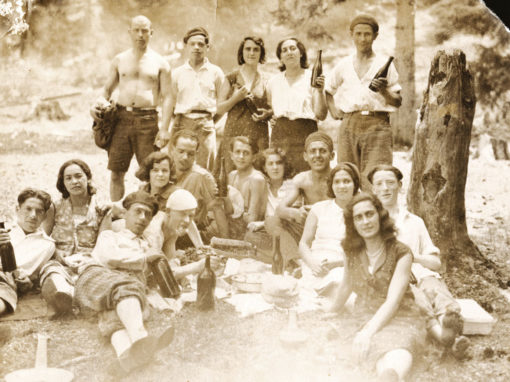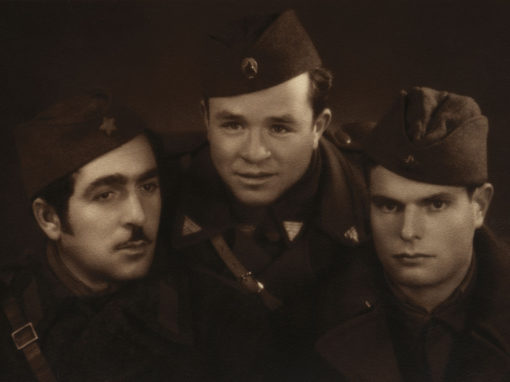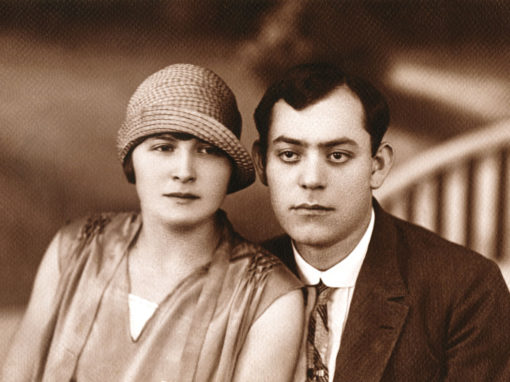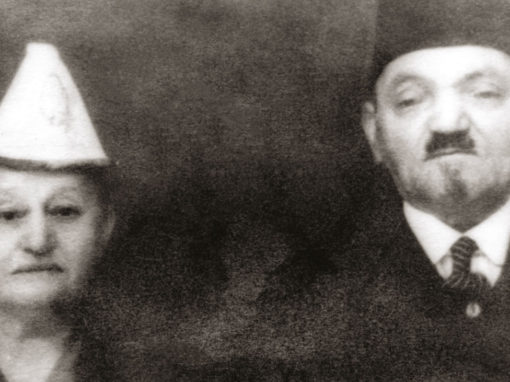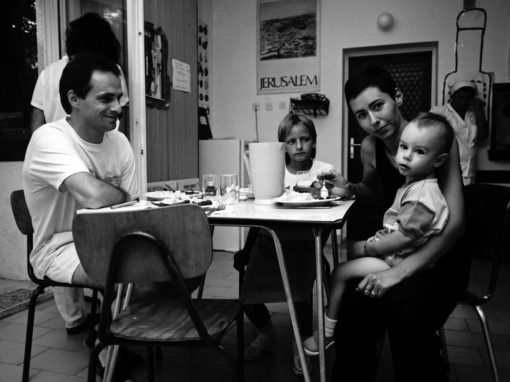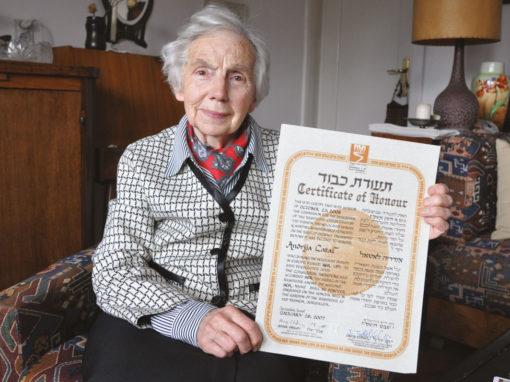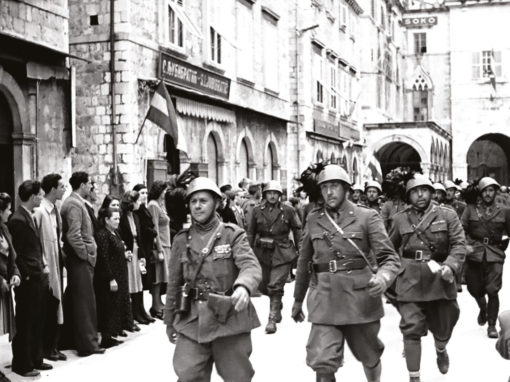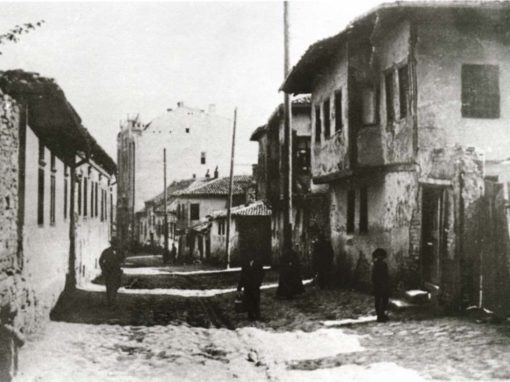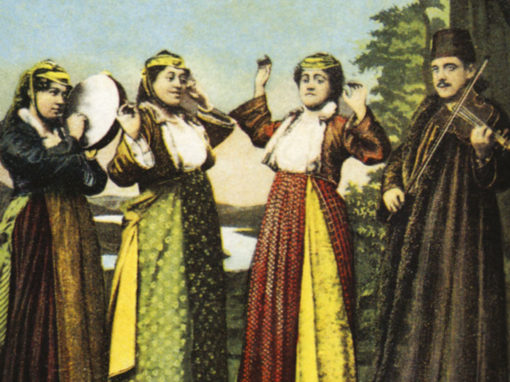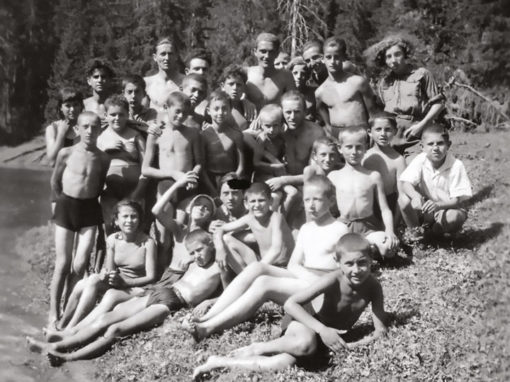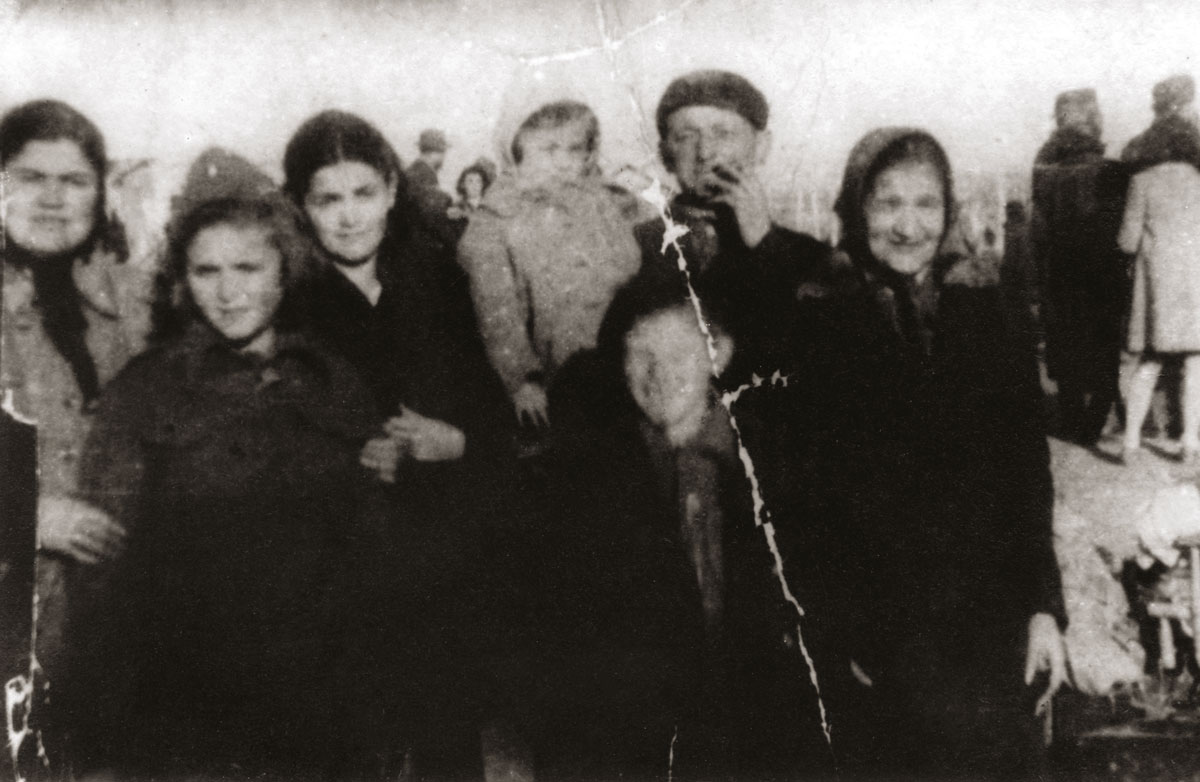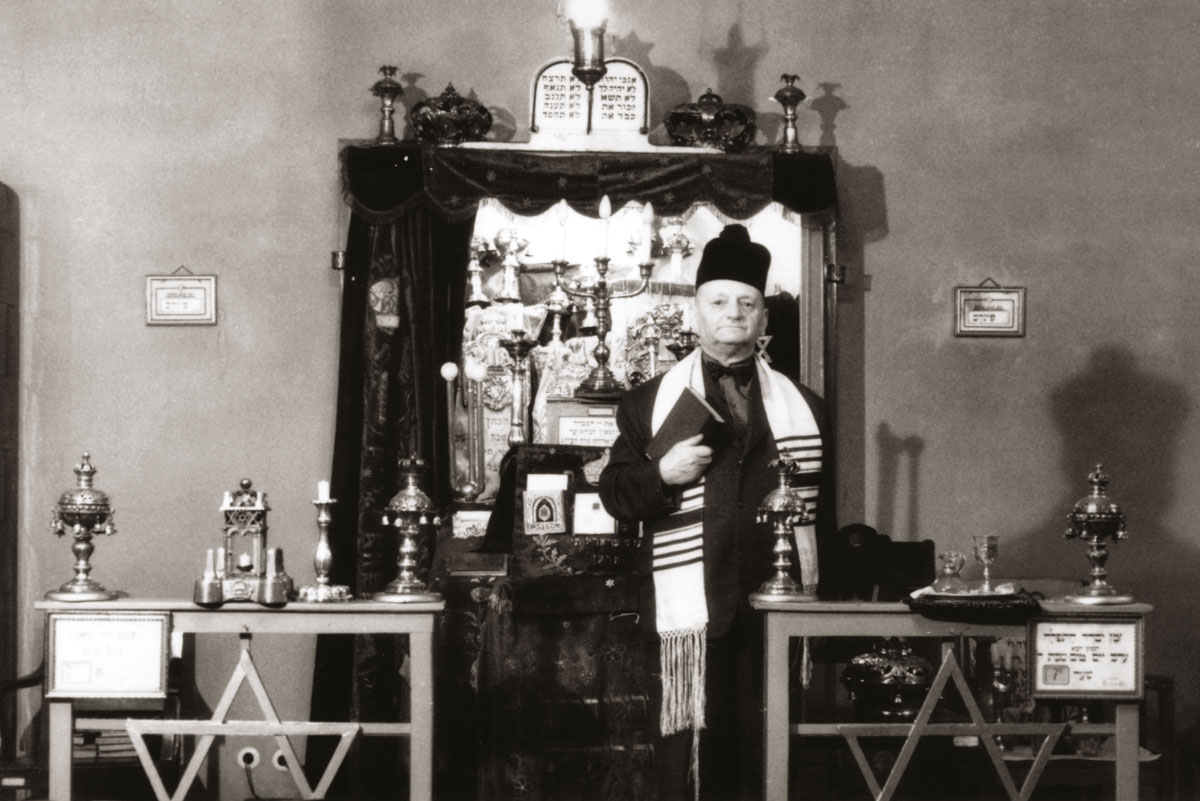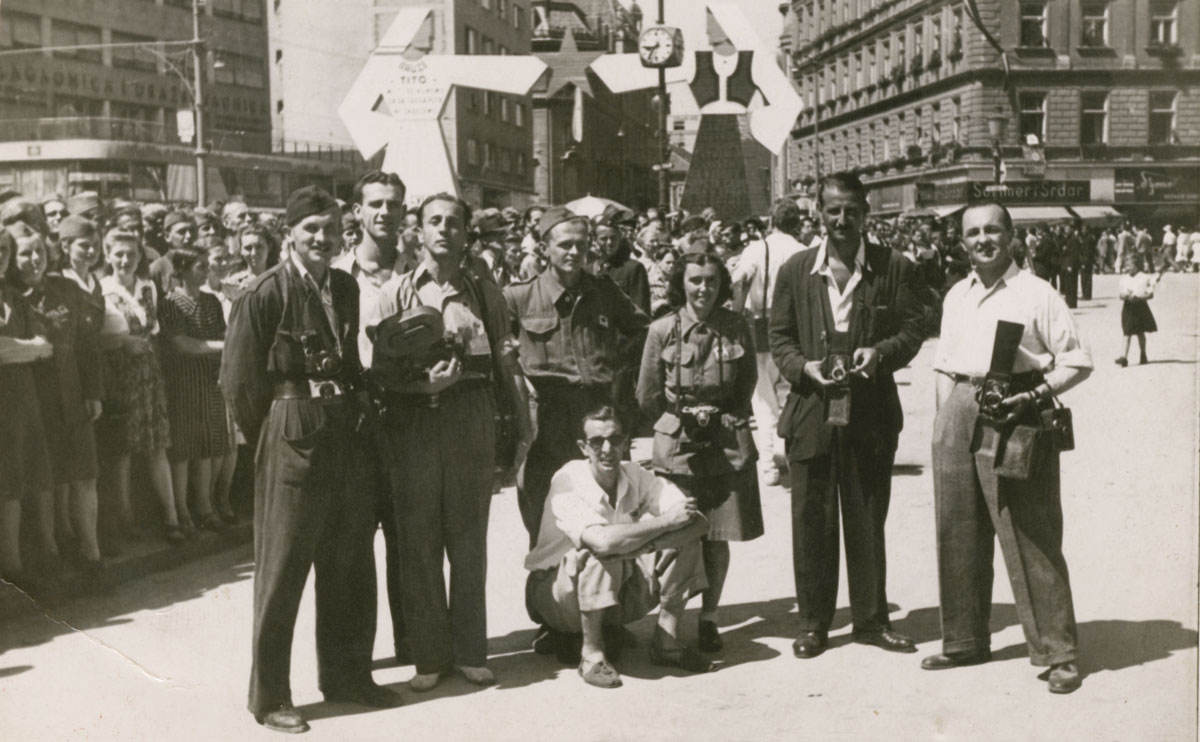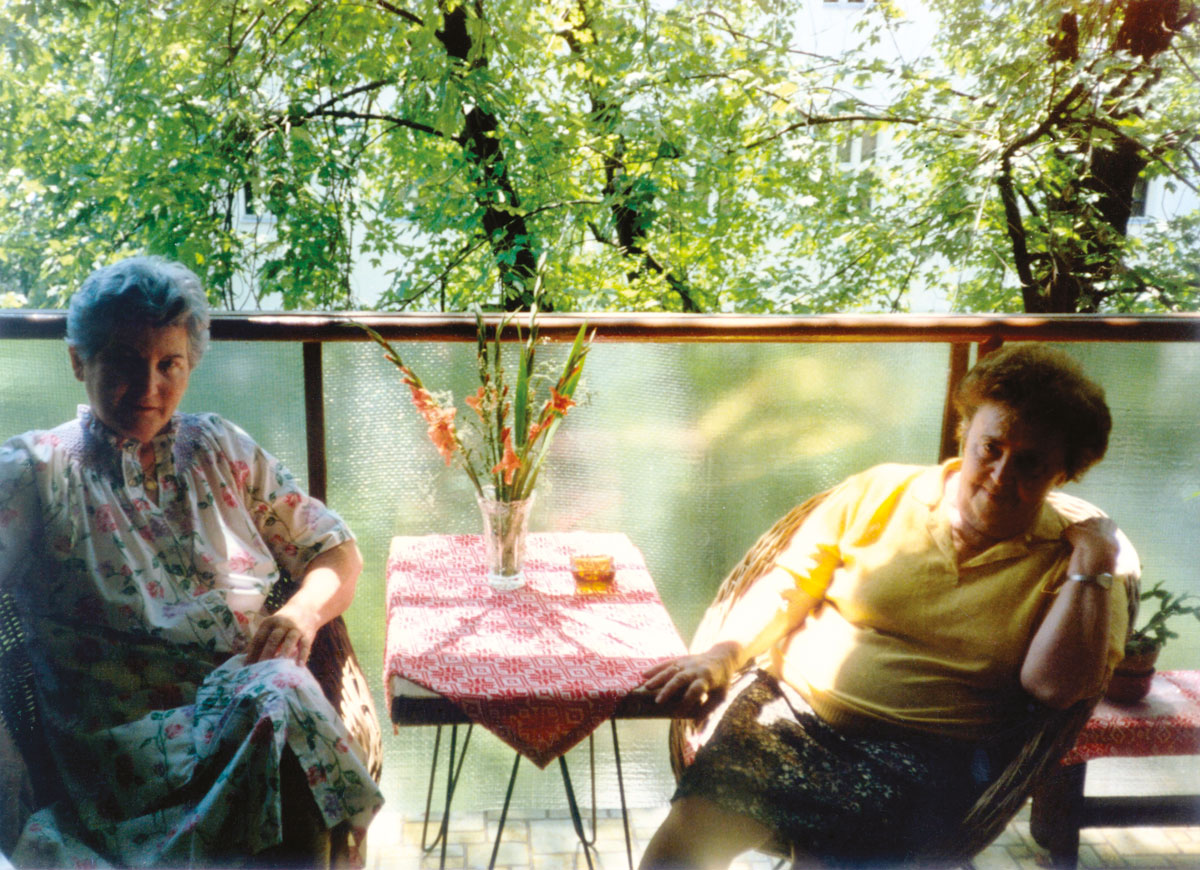Rifka Altarac Vostrel
Sarajevo
1925
My grandparents, Avram and Belja Altarac. My grandfather was a plumber and owned a little shop on Bascarsija Street, where he worked alone. He was one of those typical shop owners that worked with metal and tin. My grandmother was a housewife and took care of their six children; one of them was my father.
Sarajevo
1920s
My father, Leon Altarac, and my mother Rose, who had been born an Atijas. We were 100% Sephardic but I didn’t learn Ladino very well. At home we spoke Croatian, and when our parents didn’t want us to understand, they spoke Ladino—so I learned a little so I could listen in. We grew up in Split, where Dad took care of the synagogue.
Tuturano refugee camp, Italy
1944
This picture was taken in Italy and that’s my family. We had made it out of Split when the Germans came in 1943 but we were separated. I was only 14 but I had to fend for myself. I got to a Partisan unit and wanted to fight but they didn’t want children. I was eventually evacuated first to Brac, then Bari. Friends knew my parents were nearby and this happy picture was when they found me. We were then transported to El Shatt in Egypt with other people from Dalmatia where we waited out the war.
Elvira Kohn
Dubrovnik
1935
Here I am wearing a traditional dress that the women of Dubrovnik would wear. I was born in Rijeka in 1914, then moved to Vinkovci where I grew up and went to school. I loved photography and worked for the Ercegovic family in Dubrovnik. I didn’t know it when I started working for them, but the Ercegovic family would save many Jewish lives during the war.
In the partisans
1942
When the Partisans arrived on Rab Island in 1943 after the Italians fled, I said I was a professional photographer with a camera and so they invited me to join their public-relations department. They also accepted my mother, who worked in the kitchen and the pharmacy. We were on the move from September 1943 until May 1945.
Zagreb
1945
We Partisans reached Zagreb on 9 May, 1945. People were standing on the streets waiting for us, clapping, waving flags. Everyone knew that the war was over, that the Ustasˇe and the Germans had run away. We decided to sleep in Pavelic’s headquarters, as a statement of victory. There I slept on a table, with an army coat beneath me and a gun by my side.
Zagreb
1998
That’s me on the right. I worked as a photographer after the war. I never married but I was truly married to my work as a photographer and worked almost until I was 70. I was honored that the Museum of Croatia accepted my entire archive of photographs.
Rifka and Elvira – Coming of Age in a Time of War
It was 1941, and Elvira Kohn had just turned 20 and was working in a camera store in Dubrovnik. Just up the Croatian coast in the port city of Split, 14-year-old Rifka Altarac was still in school and had joined a Zionist youth group. Then the Germans and their allies invaded Yugoslavia and for nearly two years, their cities were occupied by the Italians. But in September 1943 when the Italians left, the Germans were speeding toward Dubrovnik and Split—and Elvira and Rifka knew the time had come to act. Or perish. This is their story.
Explore more of our Sephardic Stories…
